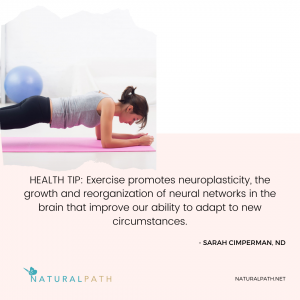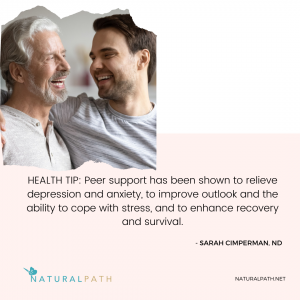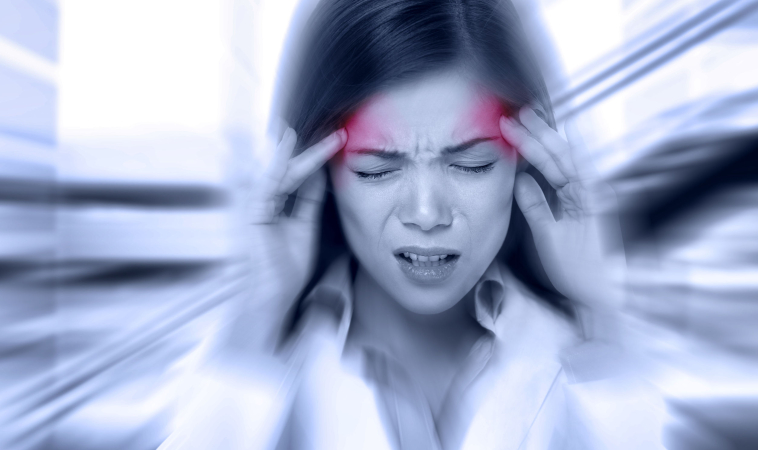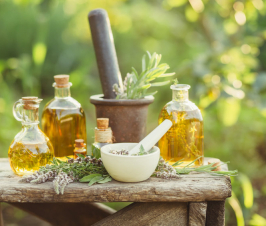The COVID-19 pandemic has caused nearly 1.5 million deaths worldwide as of late November 2020.1 It’s also been the source of considerable suffering as people struggle with economic devastation, food insecurity, unemployment, workplace safety concerns, the loss of loved ones, and social isolation. Even after individuals infected with coronavirus recover, the psychological toll can last long-term and symptoms can be similar to those of post-traumatic stress disorder (PTSD). People affected by post-COVID stress disorder may experience nightmares, flashbacks, difficulty sleeping, detachment from family and friends, and overwhelming feelings of anger, fear, hopelessness, anxiety, and depression.
Scientists and doctors are still learning about the diagnosis and treatment of COVID-related stress disorders. Researchers in North America have developed COVID Stress Scales to help identify people in need of mental health services as a result of the pandemic.2 So far, healing has focused on interventions that have proven helpful for individuals affected by PTSD, anxiety, and depression. Here are five ways to address post-COVID stress disorder, improve mental health, and adopt coping strategies amidst the ongoing global pandemic.
#1 | Exercise Regularly

Exercise has been proven to be an effective intervention for treating mental and emotional conditions including depression, anxiety, and PTSD. Researchers have found that exercise can enhance cognitive function, desensitize individuals to internal arousal cues, reduce inflammatory markers, and normalize the function of the hypothalamic-pituitary-adrenal (HPA) axis which acts as the body’s central stress response system.3 Exercise also promotes neuroplasticity, the growth and reorganization of neural networks in the brain that improve our ability to adapt to new circumstances.3 Benefits start at thirty minutes of moderate-intensity exercise (such as brisk walking) three days per week, and studies indicate that three ten-minute walks are as effective as one thirty-minute walk.4
#2 | Get Some Early Morning Sun
Early morning sunshine contains more blue light than any other time of day and no ultraviolet radiation. It helps regulate our circadian rhythm and stimulates the brain to release neurotransmitters like norepinephrine, dopamine, and serotonin that increase alertness and improve our mood. Morning light also triggers the release of glucocorticoids that help wake us up and mediate our response to stress. Researchers who exposed healthy adults to artificial light designed to mimic early morning sunlight for thirty minutes each day for three weeks found that participants were better able to cope with anxiety-provoking experiences.5 Light therapy is also used to treat seasonal depression and studies show that it may be effective against non-seasonal depression as well.6 Because blue light peaks at sunrise and decreases throughout the day, get up and go outside for fifteen to thirty minutes each morning as close to sunrise as possible.
#3 | Practice Relaxation
Relaxation exercises have been shown to improve depression, anxiety, and our ability to manage stress.7 Relaxation is also emerging as an adjunctive and alternative treatment for PTSD. Mindfulness-based therapies including cognitive therapy, meditation, yoga, and deep breathing exercises have been shown to address emotional under-modulation and over-modulation, and restore connectivity between the brain networks affected by PTSD.8 Meditation, yoga, and breathing exercises can be learned and practiced anywhere, daily or whenever the need arises. For people seeking inspiration or instruction, there plenty of apps and online videos, and many of them are free.
#4 | Stay Connected

Physical distancing has been a key strategy in reducing transmission of the coronavirus, but many people remain separated from friends and extended family members. Studies show that social isolation and loneliness are strongly associated with depression and anxiety, reduced physical activity, increased use of alcohol and cigarettes, and obesity.9 In contrast, peer support has been shown to relieve depression and anxiety, to improve outlook and the ability to cope with stress, and to enhance recovery and survival.10 During the pandemic, we may be physically distant from our loved ones but we can still socialize, thanks to modern technologies that allow people to connect like never before. While in-person visits may not be possible, we can stay in touch with family and friends by phone, emails, text messages, and video chats.
#5 | Consider Adaptogens
Adaptogens are plant medicines that help restore balance to bodily functions and increase resistance to stress through the HPA axis.11 Studies show that adaptogens can improve the ability to cope with stressful environments11 and they can be effective interventions against anxiety,11 depression,11 and PTSD.12 Several adaptogens exist—including licorice, ashwagandha, eleutherococcus, rhodiola, panax, and schisandra—so schedule a virtual visit with your naturopathic doctor to discuss the best choices and dosages for you. Plant medicines can interact with other supplements as well as prescription medications, so be sure to tell your doctor about everything you are taking to avoid possible interactions.
References:
1 World Health Organization. WHO Coronavirus Disease (COVID-19) Dashboard. [Web page]. WHO website. https://covid19.who.int/ Accessed November 20, 2020.
2 Taylor S, Landry CA, Paluszek MM, Fergus TA, McKay D, et al. Development and initial validation of the COVID Stress Scales. Journal of Anxiety Disorders. 2020;72:102232. https://www.sciencedirect.com/science/article/pii/S0887618520300463?via%3Dihub
3 Hegberg NJ, Hayes JP, and Hayesl SM. Exercise Intervention in PTSD: A Narrative Review and Rationale for Implementation. Frontiers in Psychiatry. 2019;10:133. https://www.ncbi.nlm.nih.gov/pmc/articles/PMC6437073/
4 Sharma A, Madaan V, and Petty FD. Exercise for Mental Health. The Primary Care Companion to the Journal of Clinical Psychiatry. 2006;8(2):106. https://www.ncbi.nlm.nih.gov/pmc/articles/PMC1470658/
5 Fisher PM, Madsen MK, McMahon B, Holst KK, Andersen SB, et al. Three-week bright-light intervention has dose-related effects on threat-related corticolimbic reactivity and functional coupling. Biological Psychiatry. 2014;76(4):332-9. https://pubmed.ncbi.nlm.nih.gov/24439303/
6 Perera S, Eisen R, Bhatt M, Bhatnagar N, de Souza R, et al. Light therapy for non-seasonal depression: systematic review and meta-analysis. BJPsych Open. 2016;2(2):116–126. https://www.ncbi.nlm.nih.gov/pmc/articles/PMC4998929/
7Kashani F, Babaee S, Bahrami M, and Valiani M. The effects of relaxation on reducing depression, anxiety and stress in women who underwent mastectomy for breast cancer. Iranian Journal of Nursing and Midwifery Research. 2012;17(1):30–33. https://www.ncbi.nlm.nih.gov/pmc/articles/PMC3590692/
8 Mindfulness-based treatments for posttraumatic stress disorder: a review of the treatment literature and neurobiological evidence. Journal of Psychiatry & Neuroscience. 2018;43(1):7–25. https://www.ncbi.nlm.nih.gov/pmc/articles/PMC5747539/
9 National Academies of Sciences, Engineering, and Medicine. (2020). Social Isolation and Loneliness in Older Adults: Opportunities for the Health Care System. Washington, DC: National Academies Press. https://www.ncbi.nlm.nih.gov/books/NBK557983/
10 Coughlin SS and Young L. Social Determinants of Myocardial Infarction Risk and Survival: A Systematic Review. European Journal of Cardiovascular Research. 2020;1(1):10.31487 https://www.ncbi.nlm.nih.gov/pmc/articles/PMC7575212/
11 Panossian A and Wikman G. Effects of Adaptogens on the Central Nervous System and the Molecular Mechanisms Associated with Their Stress—Protective Activity. Pharmaceuticals (Basel). 2010 Jan; 3(1): 188–224. https://www.ncbi.nlm.nih.gov/pmc/articles/PMC3991026/ 12 Ernsberger MM. Drug-Free Alternatives for Post-Traumatic Stress Disorder (PTSD). Medicinal & Aromatic Plants. 2015;S2:001. https://www.longdom.org/open-access/drugfree-alternatives-for-posttraumatic-stress-disorder-ptsd-2167-0412-S2-001.pdf

Sarah Cimperman, ND is the author of the new book, The Prediabetes Detox: A Whole-Body Program to Balance Your Blood Sugar, Increase Energy, and Reduce Sugar Cravings. She graduated from NCNM in 2002 and has a private practice in New York City. Her expertise has been featured on Fox News and Huffington Post and in Natural Health magazine, Whole Living magazine, and the Well Being Journal, among other publications. Dr. Cimperman also writes two blogs, A Different Kind Of Doctor and The Naturopathic Gourmet.

















